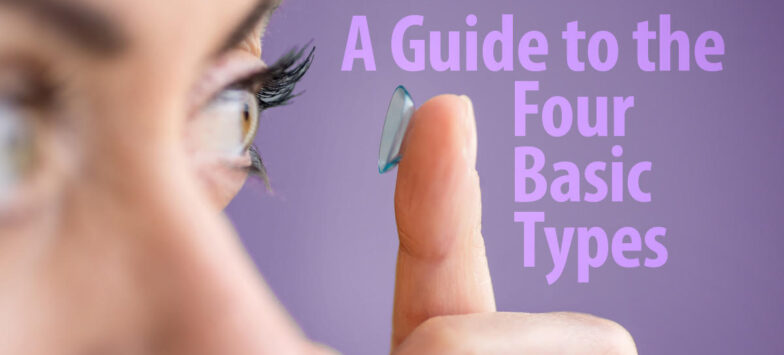
Contact Lenses – More Than Meets the Eye!
As you probably know, contact lenses are thin, clear plastic disks that float on the tear film that covers the eye’s cornea. According to the American Academy of Ophthalmology, nine out of ten people who want to correct their vision with contacts can wear them successfully. If you’re wondering if contacts might be right for you, the first step is to consult with your Atlantic Eye doctor.
Types of contacts: There are several, and one type does not fit all. Like eyeglasses, contact lenses are individually prescribed to correct and improve vision problems such as myopia (nearsightedness), hyperopia (farsightedness), astigmatism (distorted vision), and presbyopia (problem with focusing up close). The two main types are hard and soft, with soft being by far the most popular.
Daily-wear soft lenses are the most comfortable, and your eyes will adjust to them in less time than with hard contact lenses. Soft lenses are less likely to slip out of place during vigorous physical activities. They are available in a variety of tinted colors. These types of lenses must be removed, cleaned, and stored every day. Disposable soft contact lenses are replaced every day to every few months, depending on the type of lens.
Extended-wear soft lenses are designed for overnight wear. Even though they may be worn for periods of up to a week, there is an increased risk of infection. They should be worn only for the period of time prescribed by your eye doctor.
Hard contact lenses offer clearer vision with certain eye conditions, such as severe astigmatism. Many types of hard contact lenses are available in bifocals. It may take longer to adapt to wearing hard contact lenses than soft contact lenses, and hard lenses may slide out of place more easily with vigorous physical activity or sports.
Cosmetic Contact Lenses are often called zero-power or plano contact lenses. These are the ones bought without a prescription at boutiques, beach shops, tattoo parlors, and other nonprofessional retailers. They pose serious health risks. Many people, especially teens, have lost their sight after wearing this type of nonprescription lenses.
October is Contact Lens Safety Month! Because contact lenses are considered medical devices, they need to be properly fitted by an eye care professional, even if they’re just for changing eye color. And with Halloween costumes on the horizon this month, in our next Atlantic Eye blog we’ll talk more about the hazards of wearing cosmetic lenses – stay tuned!
